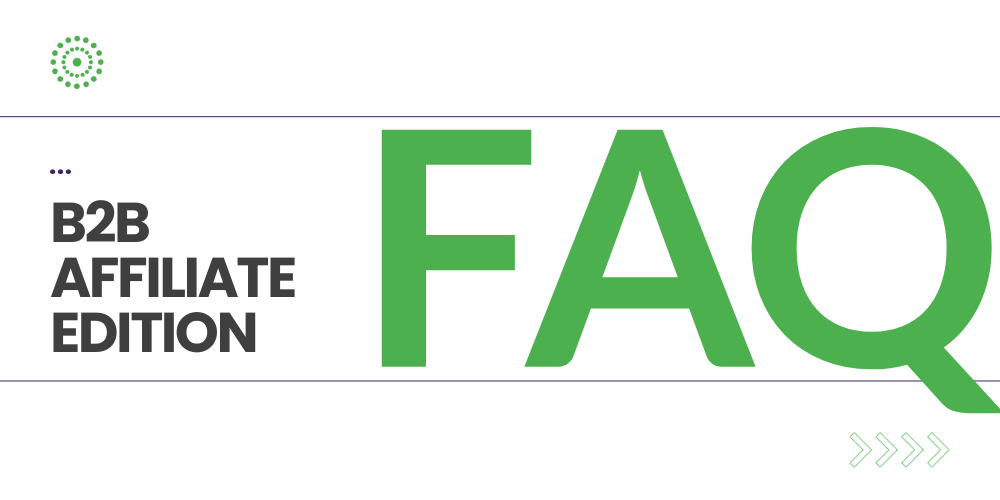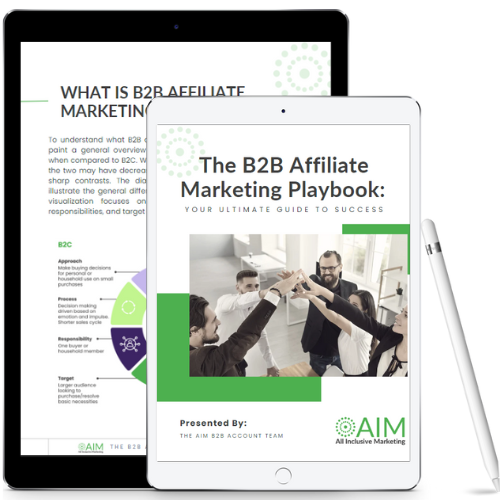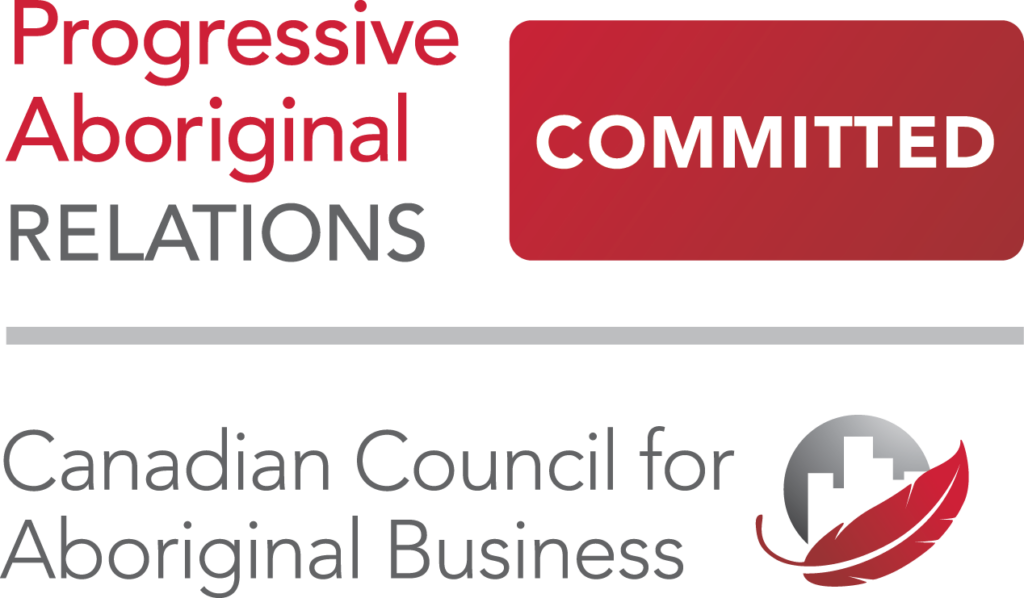In the dynamic world of B2B marketing, staying ahead of the curve is not just a strategic advantage; it’s a necessity. As businesses increasingly seek innovative approaches to boost their online presence and drive revenue, affiliate marketing has emerged as a strong force in the B2B sector.
To help shed light on this growing B2B strategy, we’ve put together a comprehensive FAQ guide, diving into the intricacies of B2B affiliate marketing. These Q&As offer insights and answers to the questions that businesses frequently encounter on their journey to harness the full potential of this digital strategy. Whether you’re a seasoned B2B marketer exploring new avenues or a business owner eager to leverage affiliate partnerships, this guide is tailored to provide the clarity you need.
From understanding the fundamental concepts of B2B affiliate marketing to navigating partnership structures, we’ve curated a collection of key questions. Join us on this exploration into the world of B2B affiliate marketing, where collaboration paves the way for sustained success. Let’s dive into the frequently asked questions aimed to equip you with the knowledge necessary to get started and propel your business forward.
Q: Why do we need an affiliate program for our B2B SaaS organization and how can I pitch it to the C-Suite?
The reason is simple – digital expansion is driving the B2B brands that are growing. Those most resistant to evolving their sales process, expanding their omnichannel footprint, and improving their B2B Ecommerce experience, are getting left behind. B2B affiliate fits perfectly into this trend and growing need as it has such a large potential network of experienced partners that reach new audiences that your brand could never do on its own.
Q: We’re convinced about B2B affiliate and want to understand budgets but what expenses do we need to consider?
First, you need to consider who will manage the program. Do you have someone experienced in-house or do you plan to hire someone or an agency? Next, you’ll want to find a tech platform solution that supports your objective, whether that be an existing affiliate network such as Impact or PartnerStack. Or, you’ll want to figure out if it’s something you potentially want to build internally. Finally, there’s the cost of running the program, specifically what costs and payouts you plan. While commissions typically grow in line with performance, make sure to include in your budget: additional funds that you can allocate for bonuses, extra incentives, and other commission structure tests.
One more thing, keep in mind that some dev support during integration, as well as possibly some creative support are key to ensuring a successful affiliate program.
Q: And how do we prepare ourselves to get set up and ready to launch?
First, business objectives need to be clear, ideally with KPI targets as a baseline for building out the strategy. For the program, you’ll want to think about the user experience, the conversion path, and how that is all tracked. Then do your research on the right affiliate platform, and make sure to consider things like recurring commissions, CRM integration, and different types of payment structures that you may be interested in offering to partners.
Q: We’re building out our go-to-market strategy, what are the things we should keep in mind?
For starters, know what you’re willing to pay out for the different conversion events that you may be tracking, whether that be leads, opportunities, or sales for example. Also, spend some time working through your current internal marketing efforts to find where the gaps are. Use that as your springboard to map out your ideal diverse partner portfolio that you’ll be focused on. This will lead to building out a robust recruitment strategy, followed by an activation and optimization strategy which should be the pillars of your GTM plan.
Q: For B2B brands, what are the typical affiliate types that tend to work well?
Any trusted lower-funnel types comparison sites, influencers, media, and communities that B2B buyers are going to for reviews, recommendations, and information are going to be the first stop for most. There are also performance-type partners that are lower funnel and can support paid media, such as SEM or paid social. Beyond that, there are many niche sites. Based on what you’re trying to accomplish with your program, there may be a lot of opportunities to work with partners whose audience is at different stages of the purchasing funnel, such as interest or even awareness.
Q: We’ve brought on a lot of new partners but we’re struggling to get them active. What should we be doing?
First, you need to make sure that you have all of the proper resources and assets your partners need to be successful. In addition, your partners may need more hand-holding and support, so create a prioritized list of top opportunities, audit their sites and content, and try to set up some time to speak with each. They may be overwhelmed with getting started, distracted with many other priorities, or just not incentivized enough. Do your research, build the relationship, and have open and honest conversations about what would help make it easier and more attractive to get started.
Q: We want to do regular audits for active partners to optimize their performance but don’t exactly know what to focus on. Can you give us a breakdown of what to look for?
Incentives for both the partners and the end user are good places to start. Know that partners and the end user are likely looking at and working with competitors so do a deep dive to make sure what you’re offering is competitive. Next, think about how you can increase conversion so look at whether the content, landing pages, and user experience are optimal across top partners. Lastly, just spend a bit more time on your top partner’s sites, and try to find opportunities where your brand can easily be slotted into existing content. Promotion of your brand can be a lot of work so do the leg-work as much as you can to help make it as simple as possible for publishers.
Q: We already have an affiliate program and performance has been lackluster. What’s the next step?
Wrap Up
As you move forward, remember that teamwork is key in this digital era. As B2B marketing keeps changing, it’s crucial to embrace new strategies for lasting success. By staying informed and forming smart partnerships, you set your business up to not just keep up but to lead.
We hope the insights shared have been helpful for both experienced marketers trying something new and business owners looking to benefit from affiliate partnerships. However, if you’re looking for a more in-depth look into B2B affiliate marketing, be sure to download our B2B Affiliate Playbook. In this playbook, you’ll get a breakdown of conversion paths & tracking, recommended tools & CRMs, specific publisher types you should look for, and more!











